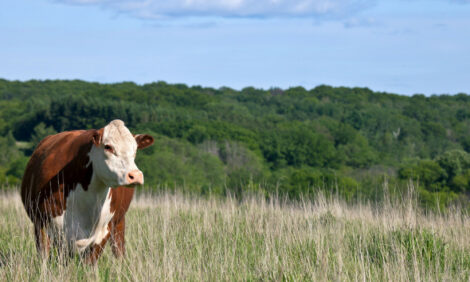



'No Back-sliding on Backstop and No Time Limit,' Says IFA
IRELAND - Yesterday, the IFA held a National Council meeting in Dublin in which IFA President Joe Healy said it is no exaggeration to say the Brexit talks are the most important negotiations for the future of Irish agriculture and its agri-food sector, since Ireland joined the EEC in 1973.The Tánaiste & Minister for Foreign Affairs Simon Coveney addressed the meeting on the latest developments on Brexit. Mr Healy said there can be no back-sliding on the backstop and no time limit.
IFA is very clear that Irish farmers’ interests lie in maintaining full access and trade free of friction both North/South and East/West between Ireland and Britain, while retaining the full value of the UK market. The ideal way to achieve this would be for the UK to remain within the Single Market and the Customs Union, but their Government is taking a different approach.
Future EU-UK relationship
According to Mr Healy, the UK’s stated intention of leaving the Single Market and the Customs Union and pursuing an independent trade policy including agri-food makes it impossible to retain the kind of friction-free trade Ireland has today.
He said, "This would open the door to Britain directly competing with the EU in future trade deals, undercutting EU import tariffs and granting additional import quotas, for example to the US, Mercosur, Australia, New Zealand, Canada etc. That would be totally unacceptable. In the same way, the UK’s proposal for a so-called 'common rulebook' only covers border checks and falls far short of full regulatory alignment with EU standards."
IFA is reportedly concerned that the UK is aiming to avoid compliance with EU regulations and standards on marketing, labelling, GMOs, pesticides, geographic indications, food fraud and other CAP requirements in ways that would give their producers clear competitive advantages over EU producers, which would be deemed unacceptable.
Support for farmers
IFA reports that it has set out the need to prepare for all possible scenarios in the Brexit negotiations and will require Government and EU support measures, depending on developments.
The requirements include direct income aid to farmers in the event of further Sterling devaluation – any fall in Sterling beyond 90p would be disastrous for producers. Depending on the outcome of the negotiations, a special purpose fund will be required to offset the negative impacts from Brexit.
The financial commitment must be scalable and sufficient to deal with any eventuality, from a 'soft' Brexit up to a 'no deal' scenario. This would provide scope for direct producer sectors and targeted supports, basic payment top-ups and emergency market supports, as may be necessary.
Farmers may also require structural and adjustment support measures to cope with the additional costs and long-term devaluation of returns from the UK market.
TheCattleSite News Desk


